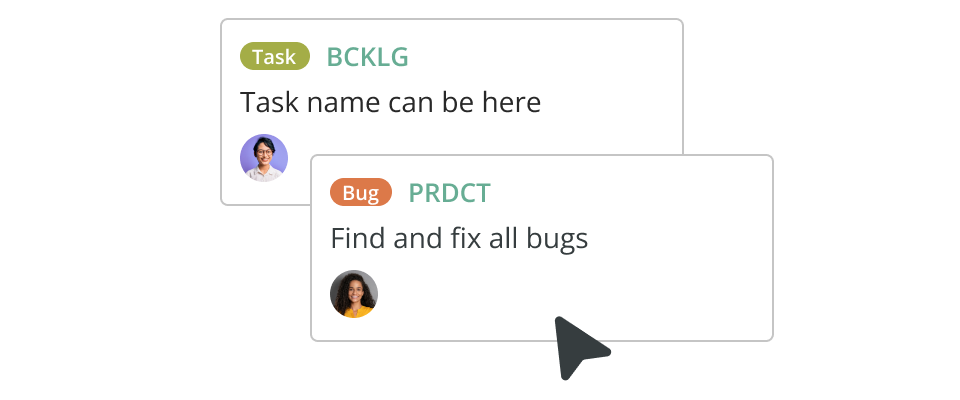We’ve all experienced instances of our emotional barriers getting the best of us. At work, they can sneak in without us even noticing, and before you know it, they’re getting in the way of clear communication, teamwork, and even career growth.
While emotions can be powerful motivators, help guide us toward our passions, and even keep us out of danger, unchecked emotions can also lead us astray.
Maybe you get defensive during a meeting, hold back feedback, or misread a colleague’s tone — all because emotions are taking the lead. The good news is that emotional barriers aren’t permanent, and you don’t have to let them control your interactions.
Once you start recognizing them and practicing a few strategies, you can communicate more clearly, reduce misunderstandings, and build stronger relationships with your team.
In this article, we’ll break down why emotional barriers happen, why they matter at work, and practical ways to work through them without pretending you’re emotion-free.
What are emotional barriers, and why do they matter?
An emotional barrier is a mental block that influences how you perceive others’ actions and prevents you from clearly communicating your feelings. Emotional barriers can trigger an emotional response that’s inappropriate or unproductive.
Who you are and what you’ve experienced play a big role in how you perceive information. For example, two people viewing the same painting might have very different emotional responses. The same goes for perceptions in the workplace. An encounter that seems aggressive to one person might come across as sarcastic to someone else and judgmental to yet another person.
The perception biasis we hold stems from the fact that we’re never starting from square one when communicating. Our past experiences, personal beliefs, and conditioned behavior shape our expectations of every interaction. So, whether we realize it or not, our minds are primed to process new information in a way that feels familiar.
The problem is our expectations aren’t always right. And as a result, we often make judgments based on what we already know or believe without considering the other person’s perspective. Emotional barriers make communicating challenging because you’re more likely to escalate problems.
Examples of emotional barriers
Here are some of the most common emotional barriers you’ll see in the workplace and what they actually look like in real situations. Think of it as a way to spot the warning signs — in yourself or others — so you can start addressing them before they derail communication.
Anger
Anger is detrimental to communication in many ways. First, it makes you less logical. Anger actually affects the way your brain processes information. You’re less likely to solve problems effectively, and you’re more likely to reject explanations and solutions from others (even when they’re right).
Second, anger tends to cause a strong reaction from those around us. Whether the person you’re directing your anger at ends up feeling hurt, scared, or defensive, chances are the conversation isn’t going to go as productively as it could have.
Example: You receive a last-minute request from a teammate to revise a report. Instead of calmly reviewing it, you reply with a curt message. The teammate feels attacked, and the conversation spirals into tension rather than collaboration.
Pride
People who always need to be right or have the last word tend to struggle with healthy communication. Focusing solely on your own perspective has a way of shutting down communication with others. If you want to engage in effective collaboration and communication with your coworkers, you must learn to listen.
Listening involves more than just hearing someone else’s words. It means taking other people’s opinions seriously and following others’ advice when they have more expertise in a subject than you.
Allowing others to have a say in the final product demonstrates trust and respect — even if it’s not exactly how you would have done it. When pride gets in the way of communication, you don’t end up with the best solutions; you end up with your solutions.
Example: You insist on using your preferred software tool even though your team suggests a more efficient option. Deadlines slip because you refused to adapt, and team frustration grows.
Anxiety
Anxiety comes in many forms, including social anxiety, generalized anxiety disorders, and panic disorders. It can cause you to avoid certain circumstances, like talking in front of a crowd or speaking up when it would be in your best interests. And when it gets too far out of line, it can easily hold you back career-wise if you fail to step up to new challenges out of fear.
Anxiety also impacts your ability to think clearly and creatively. Many people who suffer from anxiety cite concentration problems as a major consequence of their worrying. Anxious people also tend to engage in dichotomous thinking or “black and white” thinking. Rather than seeing creative solutions in the middle, they imagine the most extreme outcomes.
Example: You’re nervous about speaking up in a meeting, so you stay silent even though you have a solution to a problem. The team misses your input, and you feel overlooked or undervalued.
Apathy
Unlike the other feelings discussed here, apathy doesn’t involve a heightened emotional response. Yet, it can be equally harmful in the workplace. Apathy is a lack of concern or emotion in matters that should interest you. It becomes an emotional barrier when you routinely give off verbal, social, and physical cues that set a negative tone.
Apathy can come across as pessimism or low motivation. This can provoke strong responses from others and make them unwilling to communicate with you. Imagine if your co-workers are excited about a team project. Yet, you seem disinterested, put in little effort, and shoot down every idea. Your poor mood could easily kill morale and discourage others from putting forth their best effort.
In many cases, apathetic people aren’t purposely trying to cause miscommunications. They may be stressed out from personal issues or feel unappreciated, overworked, or unchallenged in the workplace.
Example: A manager is burned out and stops checking in with the team, offering little guidance or feedback. The team feels unsupported, deadlines are missed, and overall productivity suffers.
What are the downsides of emotional barriers?
Emotional barriers can quietly undermine workplace communication. When unchecked, they affect how we interpret messages, respond to colleagues, and collaborate effectively. In professional settings, these barriers don’t just slow down conversations — they can impact productivity, trust, and overall team performance.
1. They distort interpretation
Strong emotions like stress, frustration, or insecurity can influence how we perceive messages. Constructive feedback may feel like criticism, or questions from colleagues may be misread as doubt or challenge. When emotions drive our responses, communication shifts from clear and objective to reactive and defensive, increasing the likelihood of misunderstandings.
Example: Your manager suggests a new way to approach a project. Instead of seeing it as helpful guidance, you feel like they’re criticizing your work, so you get defensive in the next meeting.
2. They inhibit open dialogue
Employees who feel emotionally blocked often avoid important conversations. They may refrain from voicing concerns, offering ideas, or addressing conflicts. While this may feel safer in the short term, unresolved issues build tension and can lead to miscommunication, resentment, or decreased collaboration over time.
Example: A coworker spots an issue in the workflow but keeps quiet to avoid confrontation. Weeks later, that same issue causes a missed deadline and a frustrated client.
3. They affect performance
Emotional barriers don’t just impact individual communication — they influence team performance. When team members are hesitant to speak openly or share feedback, collaboration suffers. Innovation stalls, decisions are delayed, and trust can erode, leaving teams less cohesive and less effective.
Example: In a brainstorming session, everyone’s hesitant to suggest bold ideas because they’re worried about judgment. The team misses a chance for a creative solution, and morale dips.
4. They increase stress
Suppressing emotions or reacting impulsively can consume significant mental and emotional energy. This ongoing stress can lead to burnout, disengagement, and even physical symptoms such as fatigue or tension headaches. Over time, both individual performance and overall workplace morale can decline.
Example: A project manager internalizes all their frustrations instead of addressing them. They end up working late nights, snapping in meetings, and feeling completely drained, which affects how the team functions.
5. They limit professional growth
Emotional barriers also stop people from learning and improving. If you’re always defensive or overreacting, it’s hard to take feedback in, reflect, and grow.
Feedback and learning moments are filtered through defensive or reactive responses, reducing self-awareness and preventing skill development. Emotional barriers can keep even experienced professionals from reaching their full potential.
Example: After getting feedback about improving presentation skills, an employee brushes it off because it stings a little. They miss the chance to level up and could lose opportunities for leadership roles.
Overcoming emotional barriers
We’re all born with varying degrees of emotional intelligence, but anyone can practice and improve it. Here are a few tips to get you started.
When you’re feeling angry
Remove yourself from an emotionally charged situation to “cool off.” Remember, while you’re still angry, you’ll likely have trouble processing logical statements. If you remove yourself long enough to calm down and reassess, you’ll get a clearer picture of what’s happening. When you return, you’ll be able to communicate more clearly and make better decisions.
When your pride is getting in the way
Practice accepting imperfections, especially in yourself. While prideful people can come across as “cocky” or “full of themselves,” in truth, pride usually stems from insecurity. People overcompensate to try to cover emotional insecurities with a sense of superiority.
Next time you realize someone else has a better idea or you’ve made a mistake, openly accept it. Other people will find it much easier to communicate with you if you can demonstrate humility from time to time.
When you’re feeling anxious
Sometimes, anxiety is small, like the kind you feel right before a big presentation. Simple relaxation techniques are likely enough to override this anxiety and get you up on stage feeling confident. Relaxation exercises are the simplest way for anyone to manage their anxiety better.
But sometimes, anxiety is overwhelming. Have you ever avoided the company holiday party because being around too many people made you feel like you could hardly breathe? If anxiety truly interferes with your ability to perform at work and in your personal life, a mental health professional can help you address these issues with more in-depth practices and reframing exercises.
Note: anxiety disorders are the most common of all mental health problems, and up to 30% of adults experience them in their lifetime. Talk therapy can be incredibly powerful for managing your anxiety in and out of the office.
When apathy shuts down your emotions
Examine your feelings and motivations to understand why you’re disengaged from what’s happening around you. Is your environment emotionally draining? Do you feel like your work isn’t meaningful?
Apathy is a common response when a major aspect of your life or environment becomes too stressful or exhausting. Consider immediate changes you can make to improve your well-being in this scenario. Consider moving to a different role that’s better suited to your skills and personality, for example.
However, if you have a general disinterest in everyday life, speaking with a licensed therapist may be helpful. Sustained feelings of emptiness or irritability are often symptoms of depression, and you can benefit from professional advice.
How to increase emotional intelligence
- Know thyself. Try to gain an objective picture of yourself, including your strengths, weaknesses, and personality traits, with a personal SWOT analysis. Ask people you trust for feedback.
- Observe yourself and others. When you slow down and pay more attention to what’s happening around you, you’ll notice that personal or environmental circumstances often magnify a conflict. Reflect on how you’re feeling throughout the day, and try to assess the source of the emotion. In time, you’ll get better at separating your emotions at the moment from how you feel overall.
- Identify your emotional triggers. Your observations should help you uncover specific conditions that contribute to negative behavior. Take note of circumstances that cause you to be more irritable, anxious, or defensive. The next time you face a conflict, ask yourself whether an emotional barrier is skewing your perception of the situation.
- Confront difficult emotions. Burying your feelings won’t help you grow as a person. When you have strong negative feelings, take a moment to consider where they’re coming from. Acknowledge why you’re upset. Then, focus on the facts and come up with a logical solution without interpreting a situation emotionally.
- Limit reactive behavior. Don’t allow someone else’s energy to dictate how you think or behave. Practice visualizing healthy responses to conflict, so you can draw upon them when coping with a real problem. You’ll be more likely to stay in control instead of letting emotions take over.
- Consider other perspectives. When communicating with others, aim to understand their perspective — not just your own. Learning to empathize will help you assess the varied intentions behind what people say and do, so you’re less likely to make harmful assumptions.
Final thoughts
To overcome emotional barriers to communication in the workplace, you’ll likely need to learn more about how your emotions work and how to manage them. Anger, pride, anxiety, and apathy serve their purposes in life. Eliminating them should never be the goal of your efforts.
However, when they interfere with your ability to communicate respectfully and collaborate effectively, it’s time to work on your emotional intelligence. Taking responsibility for your actions is the most beneficial way to reach your full potential in the workplace.
This post was originally published on March 3, 2017, and updated most recently on October 7, 2025.





